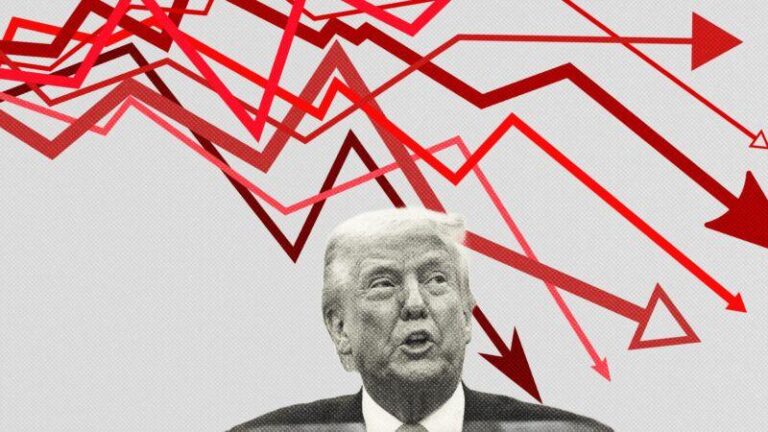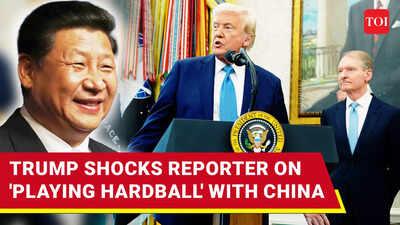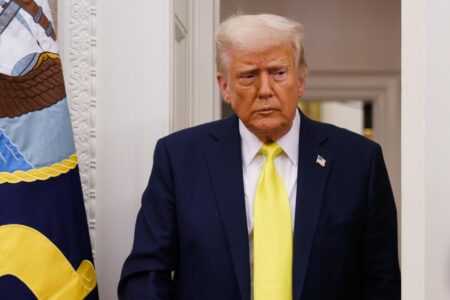canada’s Political Landscape: Navigating Trade Challenges and Sovereignty Concerns
Amidst a backdrop of political instability, canada is currently facing significant challenges as it prepares for an election influenced by the lasting effects of former President Donald Trump’s trade strategies and assertive territorial claims. The imposition of tariffs and the ensuing trade conflicts have strained relations between Canada and the United States, raising critical questions about economic stability and national security. As candidates respond to these pressing issues, Canada stands at a crucial juncture that could redefine its policies and international alliances. This article delves into how Trump’s trade confrontations and threats to annexation have not only disrupted Canadian political dynamics but also sparked a nationwide dialogue on identity, resilience, and the future trajectory of the nation in an increasingly volatile global landscape.
Effects of Trade policies on Canada’s economy and Public Opinion
The trade measures enacted during Donald Trump’s presidency have had far-reaching consequences for Canada’s economy. tariffs imposed on steel and aluminum led to retaliatory actions from Canada, creating a domino effect across vital sectors such as automotive manufacturing and agriculture. This uncertainty has fostered a challenging habitat for exporters; many small enterprises report shrinking profit margins due to rising costs coupled with supply chain disruptions. Consequently, Canadian manufacturers have been compelled to adjust their strategies, impacting their competitiveness in global markets.
Moreover, public sentiment in Canada has shifted significantly as citizens grapple with these economic realities. As the government navigates its complex relationship with its southern neighbor, concerns regarding economic security and sovereignty are shaping public opinion. Recent surveys reveal that many Canadians view the previous U.S. administration’s aggressive tactics with skepticism; this has resulted in heightened support for political parties advocating for protective trade policies aimed at bolstering domestic industries. Key voter sentiments include:
- Job Security: An increasing anxiety that American tariffs may threaten Canadian employment.
- Economic Resilience: A demand for policies designed to enhance Canada’s negotiating power in international trade discussions.
- Sovereignty Issues: Concerns about excessive dependence on U.S.-based markets.
Annexation Threats: Evolving Political Strategies Amidst External Pressures
The recent threats regarding annexation alongside Trump’s aggressive trade stance have significantly transformed Canadian politics by prompting strategic shifts among parties seeking electoral backing. with discussions around sovereignty gaining momentum, leaders must navigate this charged atmosphere while addressing complex external pressures effectively. Political factions are increasingly required to clarify their stances—resulting in reevaluated alliances and campaign strategies.
The Liberal Party, for instance, is emphasizing its dedication to national unity alongside economic fortitude; conversely, the Conservative party argues that robust leadership is essential for safeguarding Canada’s interests within an unpredictable global context.
Candidates are adjusting their platforms based on key issues resonating with voters’ concerns about sovereignty protection amidst ongoing geopolitical tensions.
A recent poll highlighted several priorities among constituents:
- 70%: Protecting national sovereignty is deemed essential by respondents.
- 62%: Economic policies addressing repercussions from international trade disputes rank high among voter priorities.
- 55%: There is strong interest in fostering better relationships with other nations globally.
This data compels all political entities to reassess their messaging strategies ahead of elections as they strive to connect meaningfully with constituents amid these multifaceted geopolitical challenges were stakes are higher than ever before.
Strategic Approaches: Recommendations for Leaders Facing Trade Turbulence
Navigating through shifting dynamics requires Canadian leaders adopt proactive measures tailored towards managing complexities introduced by external pressures effectively.
In light of current developments surrounding U.S.-Canada relations it becomes imperative decision-makers prioritize<strong adaptive approaches that mitigate risks while seizing emerging opportunities.
To bolster resilience within this turbulent trading environment leaders should consider implementing these recommendations:
- Diversify Trading Partners: Expand connections beyond customary allies reducing reliance upon singular markets;
- Invest In Domestic Innovation: Support local businesses capable withstand external shocks contributing overall growth;
- Enhance Dialogue: Foster transparent dialogue various stakeholders including public businesses ensuring alignment readiness response;
- Monitor Global Trends: Stay updated international developments potentially affecting policy adapt accordingly;
additionally engaging proactively diplomatic efforts can play pivotal role mitigating backlash stemming adverse trading practices .Canadian authorities should emphasize<strong collaborative initiatives< / stronger to strengthen ties like-minded countries formulate unified response against unilateral pressures .Insights into current state economy captured below summarizing potential impact areas :
Impact Area <th Potential Outcomes
< td Export Market Viability < td Increased vulnerability tariffs
< td Domestic Manufacturing <td potential growth innovation
<td Foreign Investment<td Stability weakened disputes Conclusion: A Defining Moment Ahead
The upcoming election period presents significant implications stemming from Trump’s past actions concerning both his controversial trading practices annexation threats looming over Canadian politics .Candidates find themselves navigating intricate foreign relations while simultaneously addressing pressing domestic issues related stability sovereignty .The unpredictability surrounding bilateral ties adds urgency electoral discourse compelling voters weigh foreign policy ramifications daily lives decisions made during this critical juncture will shape not only future direction but also redefine position amidst volatile geopolitical climate .With shadows cast by previous administration still present outcomes forthcoming elections could herald new chapter relationship southern neighbor .




